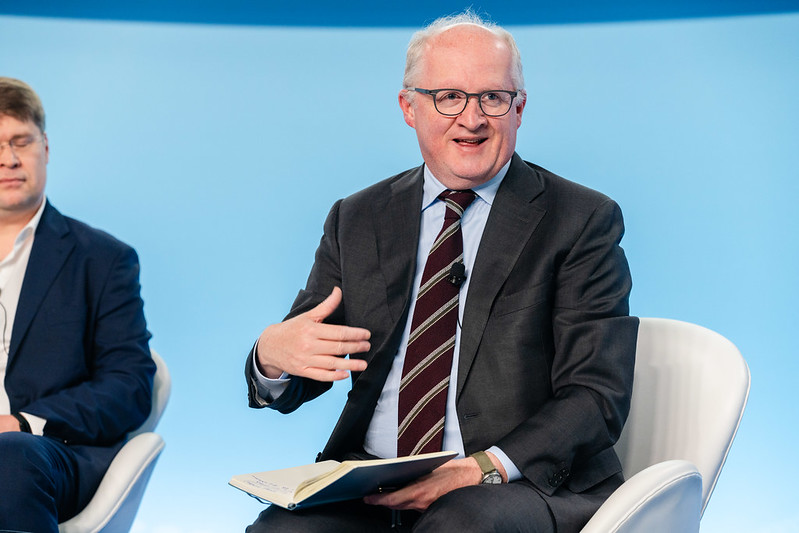ECB’s Lane: Should Continue to Refrain from Providing Guidance on Speed, Size of Cuts
25 November 2024

By Marta Vilar – MADRID (Econostream) – European Central Bank Executive Board member Philip Lane said on Monday that the ECB should stick to its current communication approach without guidance on the speed and size of interest rate cuts.
In a speech at the Bank of England Watchers’ Conference 2024, Lane said that the October cut was partly driven by ‘precautionary risk management considerations’.
‘If the slowdown signalled by recent economic activity indicators and the below target inflation print in September prove to be temporary, a decision to cut rates in October could, ex post, turn out as merely having brought forward a December cut’, he said.
However, were new data to show disinflation taking place in a forceful manner due to more significant weakness, that rate cut would, 'ex post, signal a nimble adjustment of policy to changing macroeconomic conditions', he said.
‘Retaining full optionality was therefore important and acted as a hedge against the materialisation of risks in either direction to the growth and inflation outlook’, he added.
Thus, communication should remain devoid of guidance about the pace and the size of future interest rate cuts, he said.
This strategy had been proven to be beneficial for the ECB, according to Lane.
‘Our confidence in a return of inflation to target has been growing for some time and, in response, we have gradually reduced our policy rates over the past months’, he said.
The current ‘careful, step-by-step strategy’ allowed the ECB to analyse the reaction of the economy to monetary policy moves and to uninterruptedly assess their impact, he said.
‘At the same time, gradualism is not a universal principle, as certain circumstances demand a more forceful response’, he stated.
Related articles:
- ECB’s Lane: Should Not ‘Remain Too Restrictive for Too Long’ or Inflation Would Undershoot
- ECB’s Lane: Our Rate Path Has Brought ‘Substantial and Timely Progress in Disinflation’
- ECB’s Lane: ‘Let’s Not Exaggerate the Impact of the Fed on the Euro Area’ After US Election
